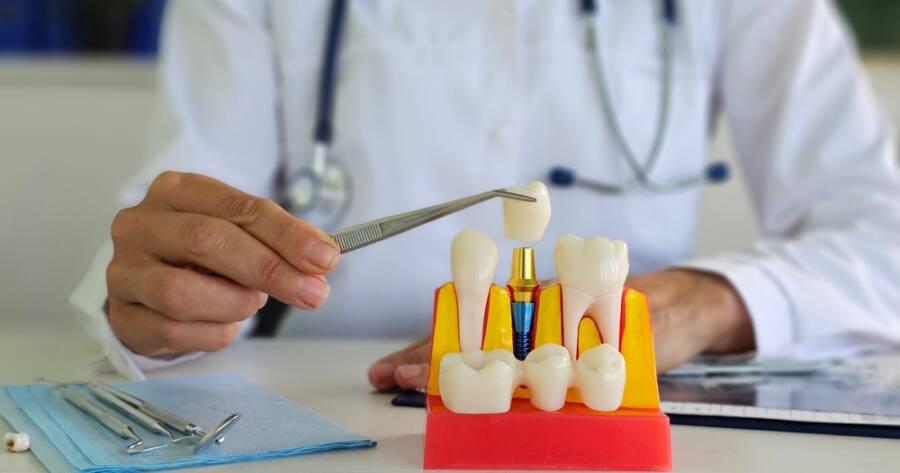Dentistry is witnessing a transformative era with remarkable advancements in dental implant technology. Innovations like 3D imaging, nanotechnology, and AI integration enhance accuracy, patient comfort, and outcomes. Current clinical trials and breakthroughs in materials further strengthen implant efficiency, contributing to a future of personalized, minimally invasive treatments that promise improved oral health and aesthetics.
Advancements in Dental Implant Technology
The realm of dental implant technology has seen remarkable transformations, offering a permanent solution for tooth replacement. Innovations now significantly enhance planning, execution, and overall patient experience. Key advancements include digital imaging techniques, such as cone beam computed tomography (CBCT), which provide detailed 3D images for precise implant placement, minimizing complications and improving outcomes.
Moreover, 3D printing technology now enables the creation of customized implants tailored to each individual’s anatomical needs, ensuring accuracy in surgical procedures. These advancements not only streamline the process but also reduce recovery times and ensure a more personalized treatment approach.
Artificial intelligence (AI) continues to revolutionize the field by offering precise treatment planning and predictive analytics, further enhancing decision-making and overall success rates of dental implants. These technological advancements pave the way for improved patient outcomes with innovations like mini dental implants for patients with minimal bone or medical constraints, enhancing comfort and recovery.
Current Clinical Trials in Dental Implantology
The integration of technology in dental implants has not only transformed procedures but also fuels the drive for ongoing clinical research. Clinical trials are pivotal in advancing oral health, exemplified by research conducted by the College of Dental Medicine, aiming to advance treatment strategies through innovative research.
One notable clinical trial examines the changes in soft and hard tissue when dental implants are immediately placed and loaded after tooth extraction. This trial emphasizes using graft materials like Bio-Oss Collagen to evaluate outcomes, particularly in aesthetic dental treatments.
Moreover, studies like the ones on bone-implant contact after maxillary sinus augmentation seek to optimize implant procedures by understanding bone formation with different biomaterials. The innovations in implantology also dive into projects that improve esthetic outcomes, particularly when gums are too thin, offering solutions like pink neck implants to combat the unesthetic look of metal exposure.
Nanotechnology and Robotic Enhancements in Dentistry
Dental implants are benefiting significantly from the integration of nanotechnology and robotics. These transformative technologies aim to increase precision and efficiency in dental procedures. Nanodentistry employs nanoparticles to hasten the integration of implants with bone, featuring drug delivery systems that reduce infection risks and promote healing.
Additionally, robot-assisted implantation techniques have shown promise in minimizing human error during surgery, streamlining procedures to reduce recovery times and potentially lower complication rates. Although these techniques initially increase costs, their efficiency and success rates will likely drive down overall treatment expenses with widespread adoption.
Moreover, the implementation of antibacterial coatings on implants aims to prevent bacterial colonization, enhancing oral health by reducing risks associated with peri-implant diseases. These coatings contribute to improved osseointegration and durability of implants.
The Role of Advanced Materials in Implant Procedures
Materials used in dental implants play a crucial role in their effectiveness and acceptance by patients, with titanium and zirconia implants offering unique benefits. These materials blend biocompatibility with functionality, essential for patients with allergies or sensitivities.
Additionally, novel implant designs feature morphological variations that react differently to various tissue surfaces, allowing for more custom solutions. These designs integrate nanostructured titanium, speeding up the integration with bone and minimizing complications like dentin and crestal bone loss.
This area of research continues to explore new possibilities, including the use of pulsed electromagnetic fields to promote bone formation, leading to innovative procedures that promise less pain and quicker recoveries.
Learn More About Dental Implant Clinical Trials
As dental implant technology advances rapidly, clinical trials play a pivotal role in enhancing treatment outcomes and patient experience. By participating in these trials, patients can gain access to state-of-the-art treatments and technologies that may not be available elsewhere.
The evolving landscape of dental implantology promises improved precision, personalized treatment plans, and minimally invasive techniques, ensuring a comfortable and streamlined process for patients. These advancements not only cater to those seeking routine dental solutions but also provide specially tailored options for individuals with more complex dental needs. By staying informed about the latest clinical developments, individuals can access cutting-edge treatments that prioritize safety, efficiency, and aesthetics.

